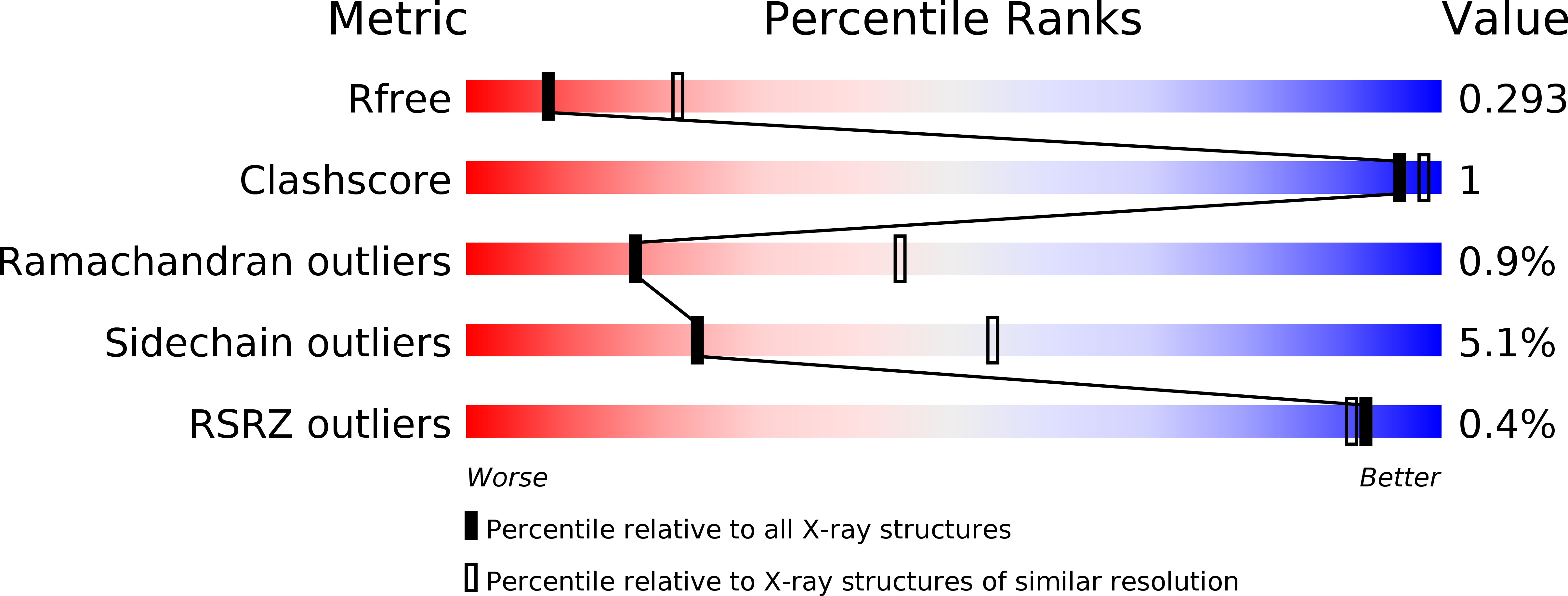
Deposition Date
2017-11-30
Release Date
2018-12-05
Last Version Date
2024-11-20
Entry Detail
PDB ID:
6BRB
Keywords:
Title:
Novel non-antibody protein scaffold targeting CD40L
Biological Source:
Source Organism:
Homo sapiens (Taxon ID: 9606)
Escherichia coli (Taxon ID: 562)
Escherichia coli (Taxon ID: 562)
Host Organism:
Method Details:
Experimental Method:
Resolution:
2.82 Å
R-Value Free:
0.27
R-Value Work:
0.22
R-Value Observed:
0.22
Space Group:
P 3 2 1


